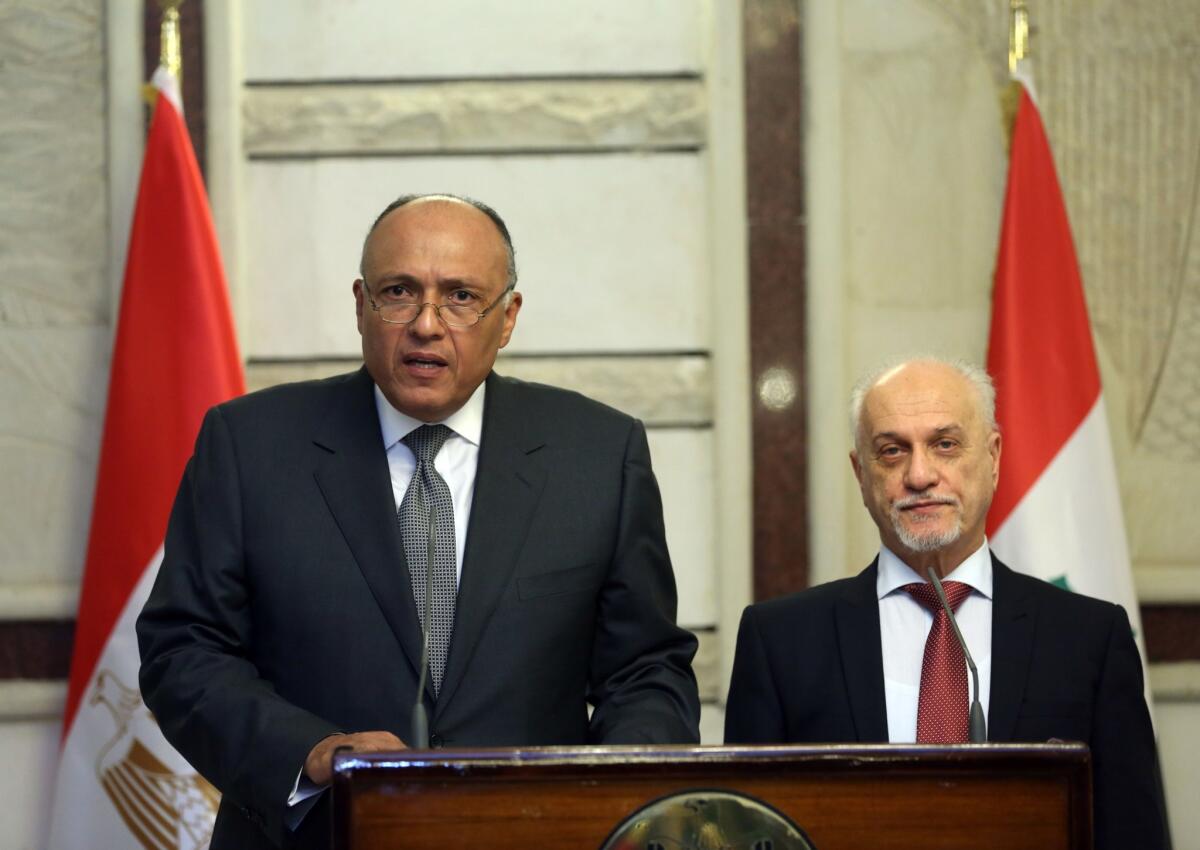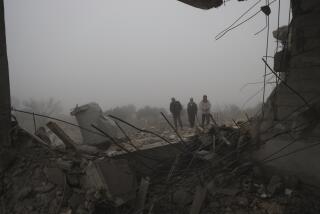Iraq tension increases as Kurdish forces seize oil fields

The rift between Iraq’s government and the semiautonomous Kurdistan region deepened Friday, as Kurdish forces snatched control of two major oil fields and Prime Minister Nouri Maliki appointed replacements for Cabinet members who declared a boycott.
The Iraqi oil ministry, part of the central government in Baghdad, strongly condemned the takeover of the Kirkuk and Bai Hassan fields by Kurdish forces in the north and called upon “reasonable Kurdish people to understand the danger of the situation.” The ministry, in a statement, threatened “dire consequences” if Kurdish forces did not immediately evacuate the area.
The Kurdish regional government, however, quickly fired back its own statement, accusing Baghdad of ordering oil ministry officials to “dismantle or render inoperable” the wells’ infrastructure. That move made it necessary for “Kirkuk Oil Protection Forces” to secure the facilities, the Kurdish government said.
While production is expected to continue normally, staff at the state-owned North Oil Company would be expected to work under the Kurdish government’s management.
“Those who do not want to do so can leave,” the Kurdish government statement said.
Kurdish authorities have long sought control over the region’s oil resources. The central government in Baghdad says the oil is a resource for the entire nation.
Meanwhile, Kurdish politicians vacated their positions in ministries as part of their “total suspension” of activities in Maliki’s government. The Kurdish bloc had held senior posts in several ministries, including Commerce, Health and Foreign Affairs. On Friday, Maliki reportedly appointed temporary replacements for the Kurdish ministers.
The always-fraught relationship between the two sides escalated sharply when Maliki on Wednesday accused the Kurdish leadership of harboring Sunni Arab insurgents dominating large swaths of the country’s northern and central provinces. The Sunni rebellion prompted Kurdish forces to occupy large tracts of Iraqi territory, including the oil-hub northern city of Kirkuk.
Southern Iraq, the source of most of the country’s oil exports, remains under central government control.
Bulos is a special correspondent. Times Staff Writer Patrick J. McDonnell contributed to this report.
Follow @mcdneville for the latest news from the Middle East
More to Read
Start your day right
Sign up for Essential California for news, features and recommendations from the L.A. Times and beyond in your inbox six days a week.
You may occasionally receive promotional content from the Los Angeles Times.






